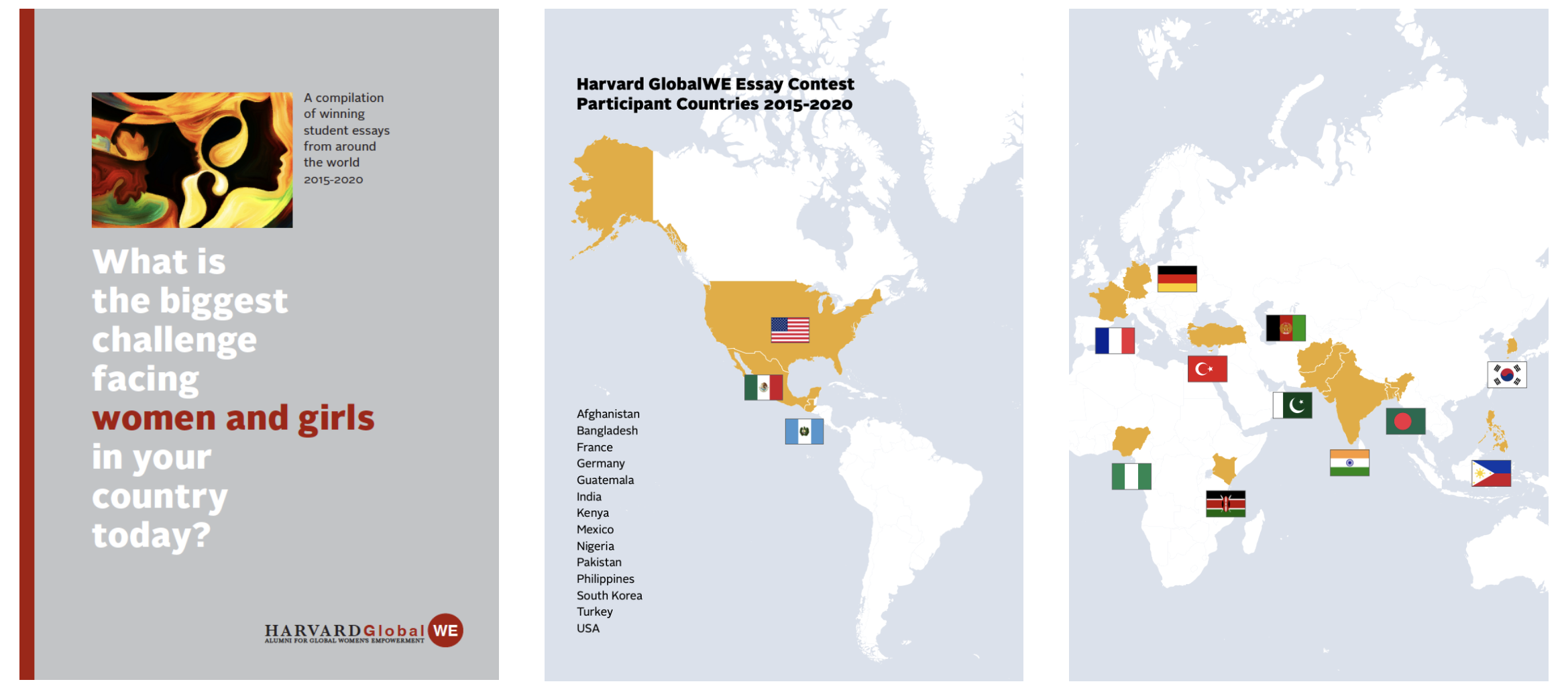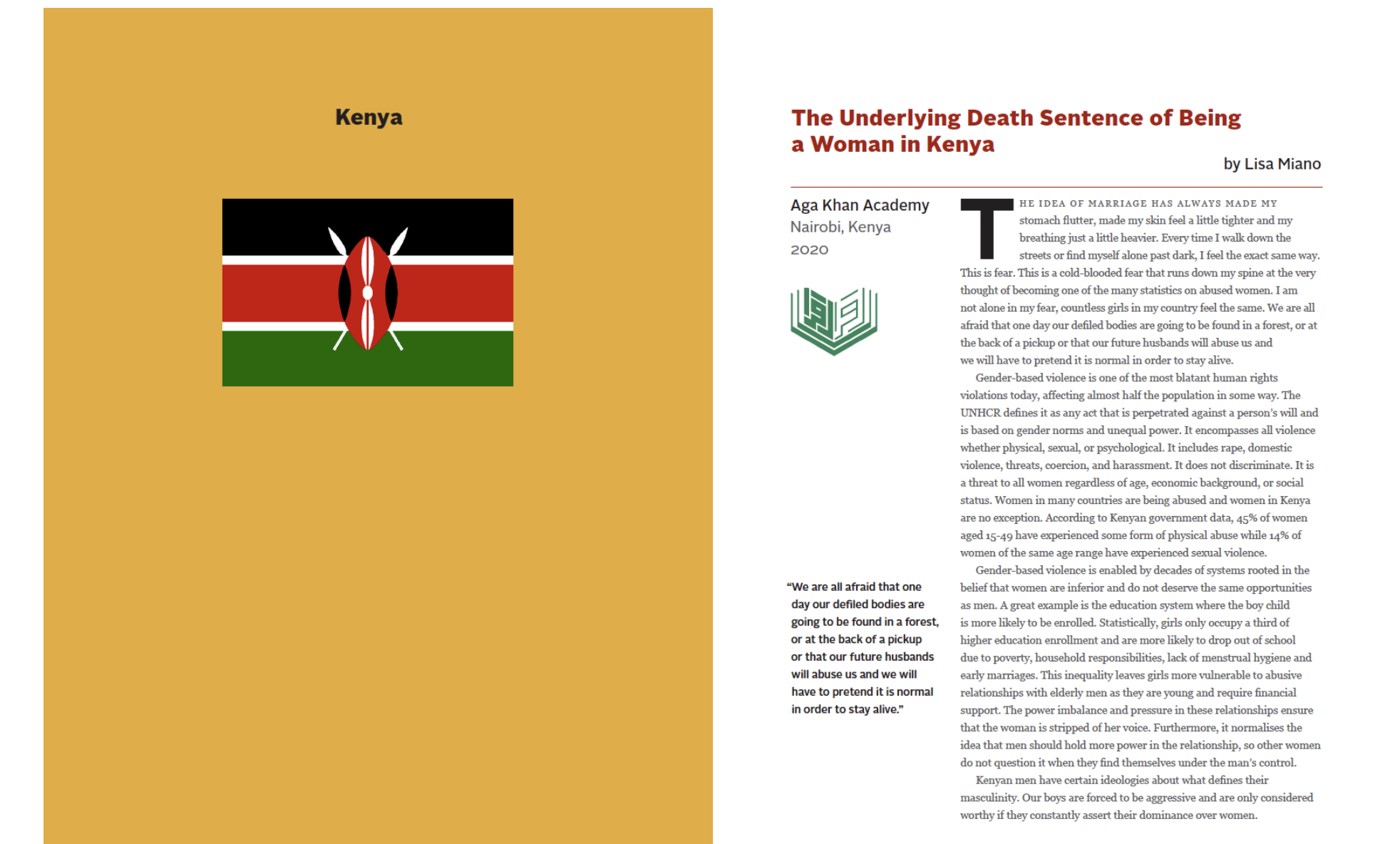My first “physical” encounter with feminism took place on one lovely Saturday afternoon while I was rushing to a nearby subway station after a soccer match. In South Korea considered one of the most conservative countries in East Asia, it is rare to see crowds of women gathering on a busy street, all holding large signposts and waving them, overwhelming the noise caused by nearby traffic with their shouts. My initial impression of the sight was appreciation. Living as a teenage girl, I was glad to see my peers gathering to cry out for the gender equality issue without compromising with the gender stereotype that has haunted our community for so long. However, as I approached the demonstrators to show my support, I had to step back as soon as I saw the slogans on their signposts filled with nothing but derogatory words and curses on the opposite sex.
Read More“Honey, can you get me a coffee?” “Mom! Where is my shirt?” “Mom come on! I need you to take me to my academy!” “Mom, what are you cooking tonight?” “Sweetie, you’re almost thirty already – when are you going to have a baby?”
Read MoreAs women, are we simply entitled to equality? Or are we supposed to earn it? For me, the answer is obvious: gender equality is, first and foremost, a simple human right.
Unfortunately, in a world full of positive female role models, sexism continues to oppress women around the world, a phenomenon particularly evident in South Korea. Even today, it is the societal norm for women in Korea to serve men or act a certain way for their pleasure. We are expected to save a special seat at the center of the table for the “all-powerful” male; we are
Read MoreSouth Korea is being lauded for its swift measures to contain COVID–19. Global news outlets praise our healthcare system and up-to-date technology that traces patients’ routes. But in April, a shocking bomb implodes within our small peninsula, an even more malignant disease that doesn’t even get half as much attention from foreign media—”Nth Room Case”. Modern slavery. 15,000+ users. When I read these words on the bus, my stomach drops. I look around as nonchalantly as possible and see three other passengers—all men—and the driver. They’re looking at their phones. One smiles a bit, scrolling through his screen. Involuntarily, my mind wonders how many “Nth Room” users could be on the bus with me that day, and I walk a little faster on my way home.
Read MoreOne movement, two realities.
The feminist movement in the US dates back to the 19th century with the Seneca Falls Convention in 1848, discussing the lowly social, political, and economic status of women. Simple and passive discussions soon evolved into active confrontations against the government. The bravery, as well as the resilience of women, was what ultimately elevated their status in Western society and normalized feminist movements in the coming centuries.
Read More‘In the future, there will be no female leaders. There will just be leaders’ - Sheryl Sandberg.
Gender inequality has always been present in society, and nobody knows how far this future is - maybe
even so far it will never happen. The bond of trust between men and women to give one another equal
opportunity defines gender equality. Unfortunately, this bond has been broken, and women are doubted
all over the world. But there is still hope.
Read MoreMy mother graduated from Yonsei University, one that is considered among the most prestigious universities in Korea. Afterwards, she enjoyed a successful career as a public relations director for an international make-up giant, and later as a lecturer at a university in Hong Kong, all the while raising three children. My mother is now a homemaker by choice.
Read MoreFootage of a woman writing "slave" on her body, a video of a teenage girl barking like a dog in front of the camera naked. These are just a few out of thousands of sickening videos exploiting sex commercialized for trade through social media. Various methods were used to steal personal information from women in their teenage or twenties to use as a threat to send sexually provocative videos. After collecting the videos of "the slaves", they then secretly spread the footage to hundreds of thousands of people offering money to gain access to the videos. Young adolescents were sexually abused and ridiculed by more than 260,000 users hiding behind the screen.
Read MoreAbout two months ago, my English teacher asked me why I wanted to leave my country at such a young age for studies. I told him about my future dreams of becoming a neurosurgeon in the USA. About how the society of my own country silently forces women to get married, give birth to children, and be content with their lives at home. I told my teacher how much I hated this implicit coercion towards women. After this conversation, I wondered, what kinds of experiences have I had to make me think women are the weaker sex?
Read More“Mom-Chung,” a cutting remark—Ji-young felt a stroke of severe pain in her heart. The short one-word disparaging mothers made her overwhelmed with emotion, recalling the bitter memories she had experienced as a mother. Mom Chung is a compound word of mom and “Chung,” meaning bug: a child-rearing bug. The word Mom-Chung denigrates ordinary mothers’ love and sacrifice towards their children. Ji-young speaks out of her sore heart, “I overcame all the pain to have a child and gave up my career, my dreams, my life, and all of myself to raise my child. And then I became a bug. What did I live for?” For many Korean women, this heart wrenching scene from the book Kim Ji-young, Born 1982 landed close to their heart. Though many people—including men—have always encountered such pain of women, it has always been considered a matter of course, rather than gender discrimination.
Read More“Because you’re a girl.” Whenever I asked my parents why I couldn’t do what my brother was doing, this is the answer I got. The list of things that girls are apparently not allowed to do grew longer each year and include sleeping at a friend’s house, staying out after the sun goes down, and wearing shorts that are “too short.” When I challenged their response, they reminded me of all the famous incidences of sexual violence against women. They always end the discussion by warning me to behave more carefully as if my sexual violence risk is determined by the length of my shorts.
Read More“Hey, don’t I look so fat in these jeans?”
“No, you’re NOT fat. Look at my thighs.”
“Oh, come on. You’re already so skinny. Ugh, I hate my stomach.”
“No, I’m the one who need to go on a diet”
Read MorePink heart emojis litter the background of an online chat room. Within a post titled “Announcement,” these words are written in polite, almost conciliatory diction: “The following videos are for your viewing pleasure. The girls depicted in them have been silenced. There is nothing to fear.” A chilling message follows: “We do not spread videos of faithful slaves who do as they are told.”
Read More“Nyeu (女)” –the general term that refers to a “woman,” possess a somewhat ambivalent, double- sided character in South Korea. A brutally murdered woman was named ‘Kareoke-nyeu’ as karaoke was the place she had her last breath. A woman who enjoys consumption of extravagant brand goods are condemned as either ‘Kimchi-nyeu’ or ‘Dwenjjang-nyeu,’ both of which contain dire misogyny towards Korean women specifically, as they utilize the name of kimchi and dwenjjang—both Korea’s traditional foods. Major media corporations are willing to capture the attention of millions of viewers by coining new ‘—nyeu (--women)’ in hopes of satisfying the mainstream, or in other words, male-dominated perspectives. The massively prevalent usage of such negative terminology on women leads the society to believe that all “nyeu (women)’” are to be blamed, denounced, and detested for their mere existence.
Read More“Honey, can you get me a coffee?” “Mom! Where is my shirt?” “Mom come on! I need you to take me to my academy!” “Mom, what are you cooking tonight?” “Sweetie, you’re almost thirty already – when are you going to have a baby?” Even now, the roles that women are asked to play in Korean society are often rigid and oppressive. Women are asked to simultaneously fulfill the part of driver, chef…
Read MoreThe interviewer peers at the woman seated across from him and asks, “You’re a woman. Do you want this job? Don’t you want kids later on in life?” The young interviewee nervously replies, “I do want this job, but I’m also planning on getting married and raising a family.” The interviewer looks unimpressed as he scrutinizes…
Read MoreOne spring day in 2016, in a public bathroom of the bustling Gangnam area, a young woman was stabbed to death by a man she had never met before. “I did it because women have always ignored me.” Despite these chilling words, the murder was not ruled a hate crime, revealing a disheartening truth about Korean culture: for centuries, women have been considered mere subordinate objects that should serve men…
Read More

